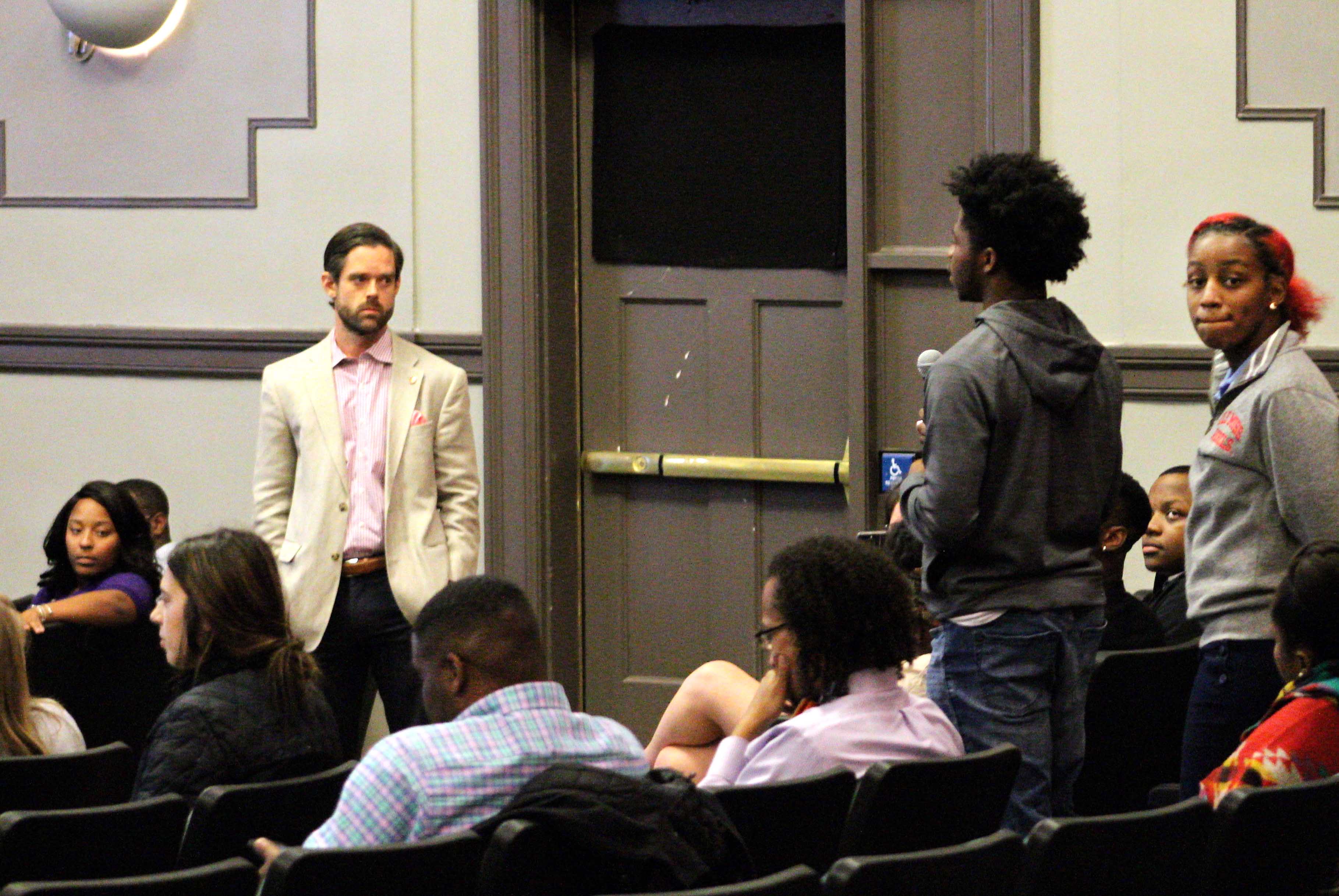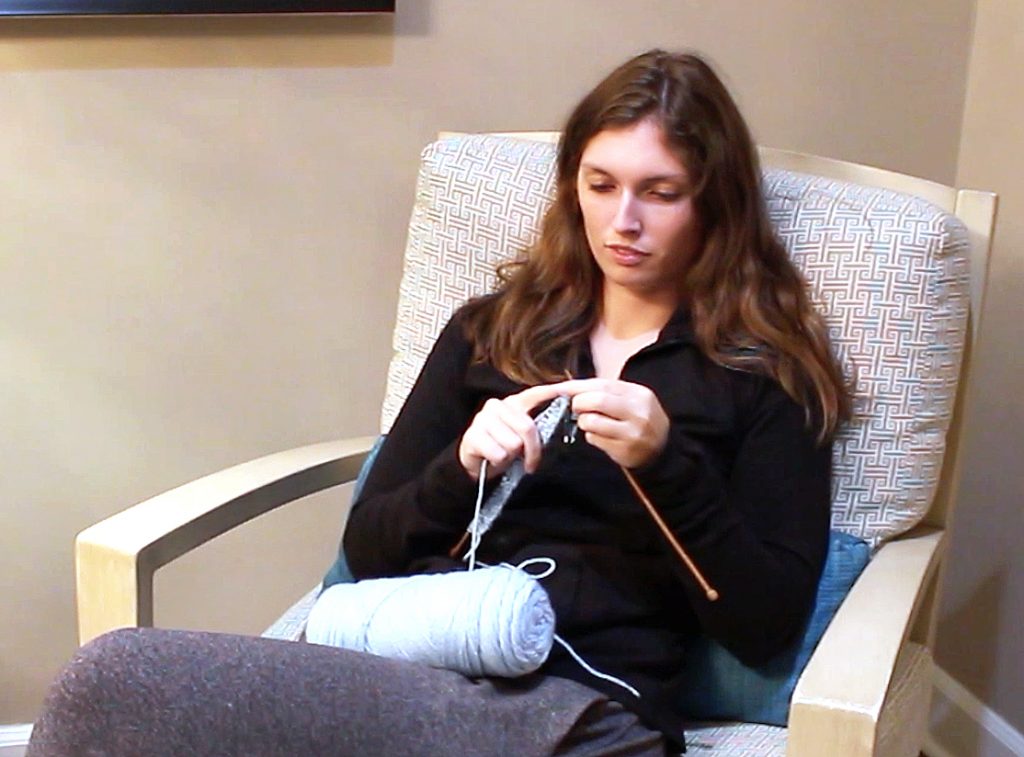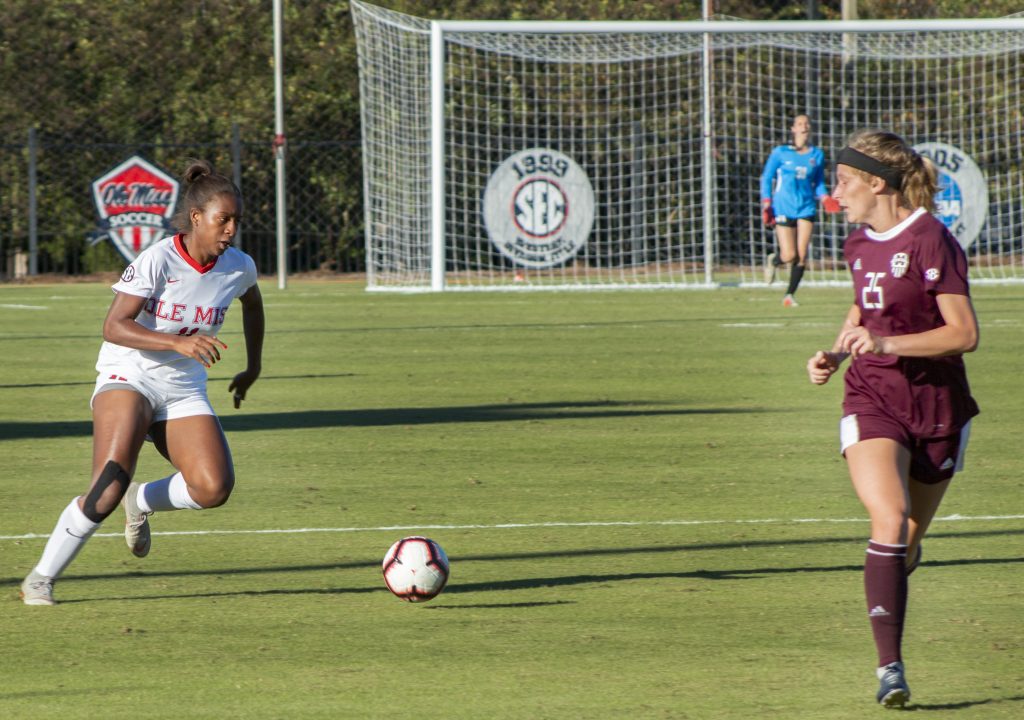Students and faculty gathered in Fulton Chapel on Wednesday night for the UM Family Meeting to discuss the current campus climate regarding race and Confederate symbols.
“No one mentions the word climate when everything is going OK,” UM student Jaylon Martin said. “When we talk about climate, we’re talking about racial tension, the Confederate symbols, and how that interacts with all of the dynamics between students on this campus.”
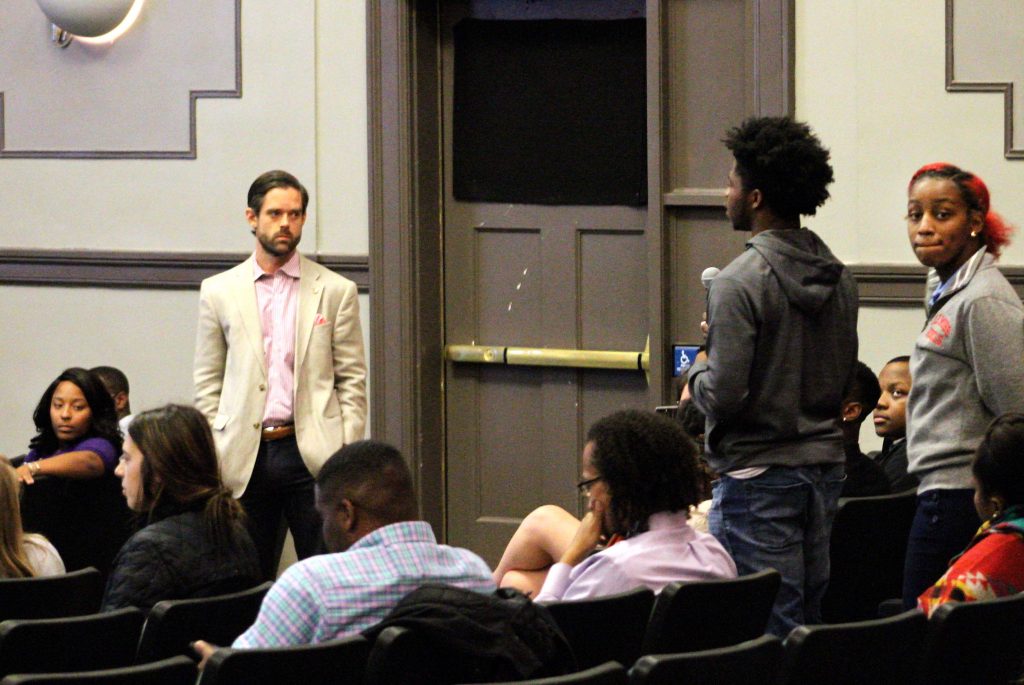
The University of Mississippi Black Student Union, Associated Student Body, the Interfraternity Council, National Pan-Hellenic Council, College Panhellenic Council and the UM NAACP sponsored the event.
Several participants introduced the idea that a discussion on race in America is often seen as an uncomfortable topic for people.
“Being confronted with the history that for 400 years there have been systems of racial oppression in this country is a really hard thing for a lot of white folks to talk about,” senior international studies major John Chappell said.
Many students cited ignorance and a lack of interest in understanding other people’s perspectives as reasons why the issue of institutionalized racism persists on the Ole Miss campus and in the United States today.
“It is not your responsibility as a black person, as a person of color, as a woman or as any oppressed person to have to teach (your oppressors), and it is also not your responsibility to have to come back at (them) gently,” Martin said.
One of the most prevalent and recurring topics of conversation was the presence of the Confederate monument that sits in the Circle. Many attendees brought up the concern of erasing history by removing the statue, others suggested that it not be destroyed but moved to the UM Museum instead.
“These symbols — they preserve racism. They preserve what the Confederacy stood for,” freshman public policy leadership major Bobby Hudson said. “There’s an actual statue at the center of the school that uplifts (the) Confederacy, that is uplifting racism. We understand history, but this school is not a museum.”
The participants also brought up the efficacy of contextualization plaques, the history of the Ole Miss name and the interactions between people of different racial backgrounds on campus. Several minority students said that while they love their home at Ole Miss, the change that needs to be made is much bigger than the issues faced every day on campus.
“Personally, a lot of us, we haven’t endured any racial injustices or racial persecutions directly toward ourselves, and our peers here at the university make us feel welcome,” Hudson said. “It’s the bigger problem, the brand of the school, and that’s we have to work to change.”
The meetings’ leaders encouraged those in attendance to question their surroundings and the behaviors they see on campus, advocating that critical thinking can lead to recognizing problems and, consequently, discovering solutions.
Several students also raised the issue of generational ideological separation between current college students and their parents. Minority students spoke of the parental warnings they received regarding racial tensions on campus when deciding to attend the university.
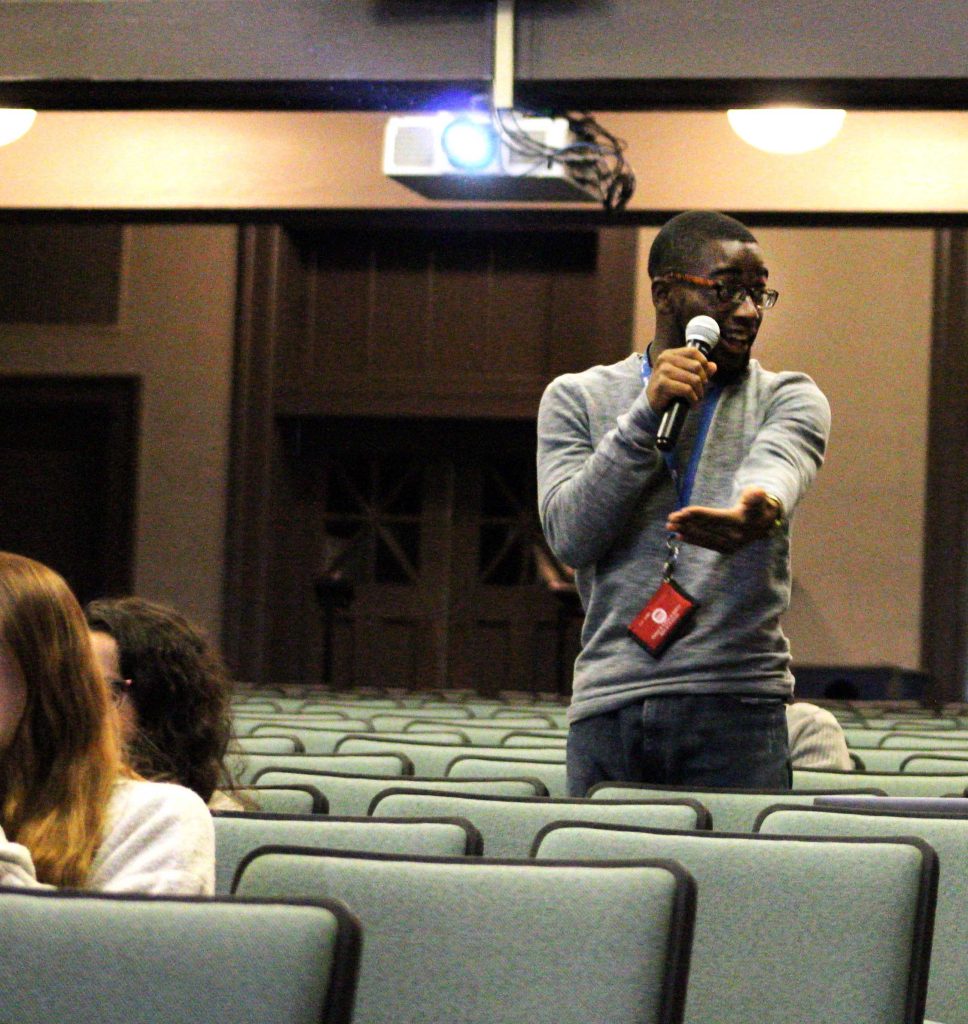
“A lot of what we’re considering culture has racism,” senior general studies major Arriana Bean said. “Just because you grew up with something does not mean there isn’t racist symbolism behind it. Something needs to change (on campus) to reflect the people that are here now, and not just those that were here.”
Some of the students present at the meeting said the solution to racial tension on campus, in the South and even in the United States as a whole, lies in concrete change and education.
“Dialogues, I think, are important as a step,” Chappell said. “If we come out of tonight and just say that we want to talk about it more and don’t follow up with action, I don’t know how we can actually progress the way that we tell our history and the way that we talk about our past.”
Former faculty senate chair and associate professor of lighting design Michael Barnett encouraged students to push student government to make the changes they want to see.
“If you want to make those types of structural changes, you need to start with your student representatives,” Barnett said. “You need to pressure the Associated Student Body to vote for change, not to vote for parking.”
Vice Chancellor for Diversity and Community Engagement Katrina Caldwell concluded the meeting by addressing the concerns students raised about faculty and administration’s engagement with the racial issues on campus.
“We’re here and we’re working as quickly as we possibly can to mount up an offense, not just a defense — I heard you — an offense, so that we can hopefully move this campus forward,” Caldwell said.

